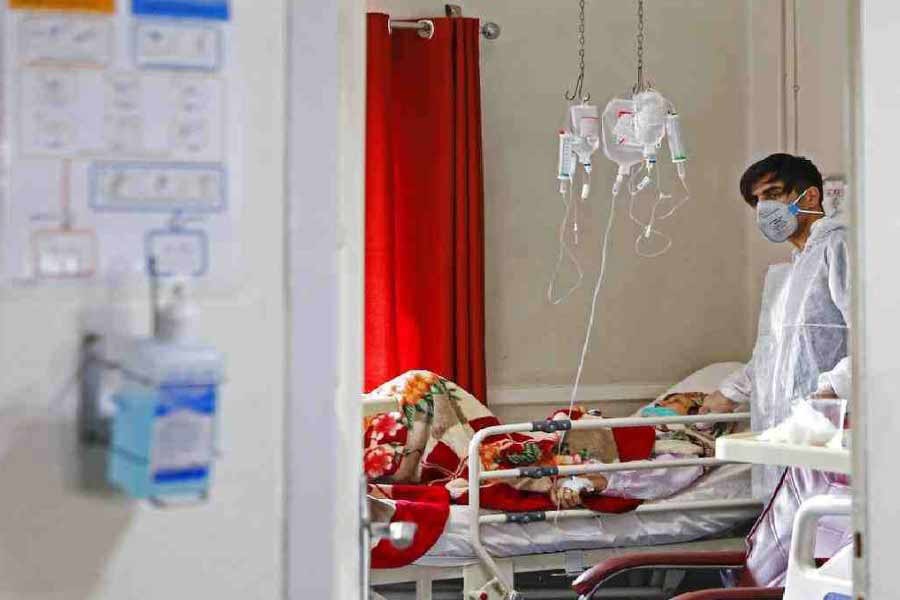With the establishment of several high-end, profitable, very large private sector tertiary care hospitals in Bangladesh, it is time for them to start thinking about undertaking in-house research initiatives to improve their care delivery performance, increase clinicians' efficiency, raise service delivery standards, build overall reputation inside and outside the country and help obtain international accreditation standards. These well-resourced hospitals can create and upgrade research capacity at their facilities. These private hospitals can take the lead to initiate building research infrastructure where clinical and other healthcare professionals will be engaged, and apply health research that will benefit these hospitals, their patients, and the society in general.
Developing research capacity at a tertiary level hospital may be planned across three different levels:
⦿ foundational skills in using research (e.g. how to search for, assess, and deliberately apply research evidence to update practice),
⦿ participation in research (e.g. assisting in research subject recruitment and data collection led by outside experts), and
⦿ leading research (e.g. developing research protocols, leading research studies, publishing research papers, and applying for external funding).
A hospital in Bangladesh may decide to undertake the following three sequential steps.
Step 1: It can support clinicians and other health professionals to grow their research knowledge, skills, and confidence. An array of approaches that they may adopt include: organise pertinent education and training for commissioning aspects of the research process such as writing research proposals and submitting ethical applications; create opportunities to learn and apply skills such as collecting data for projects, identifying research questions, analysing collected data, leading small research projects and participating in seminars, workshops and journal clubs; establish a research-friendly workplace which accommodates and values individual clinicians' research interests, motivations, abilities, time commitments and career paths; encourage mentoring and coaching from experienced researchers; offer access to resources including library, software, desk and computer use; arrange protected time and offer support to apply for external research funding; develop a system of reward and recognition through the provision of greater career opportunities, research career pathways and financial incentives; provide support to undertake formal post-graduate study.
Step 2: Research capacity building is reinforced and enriched when hospital professionals work with others in order to exchange ideas, knowledge, skills, and resources and form a 'critical mass' of research-active staff. This may be accomplished by building:
tactical alliances, partnerships, connections, and networks within and between teams, services, and organisations including universities, NGOs, government, and the pharmaceutical industry; mix of clinicians and non-clinicians with different levels of research skills within each team; coordinated and team-based projects; opportunities to share research expertise with others in the team and to wider networks.
Step 3: To build research capacity, hospital professionals need to feel that their engagement in research is valued contributing to excellent service delivery. This may be fostered by: demonstrating visible support of and endorsement of research at the hospital management level, including developing structured processes and systems for research and restructuring clinical roles to include some time for research; prioritising research as part of the hospital's core business by including research in the hospital's vision, mission, strategic plans, key performance indicators, and role descriptions; prioritising research projects which are more relevant to practise and in line with hospital's strategic priorities; reporting, disseminating and applying research findings.
One previous research study proposed the following indicators that signify the creation of a research culture in a hospital and demonstrate its commitment in building research excellence:
1) reformed performance evaluation system to recognise the importance of collaborative health research; 2) increased institutional support of health research through supervisory support, release time, incentives and rewards for research participation, and institutional funds to support a health research centre, programme or core office; 3) established internal partnerships to conduct health research; 4) increased staff/faculty skills and involvement in health research; 5) regular meetings for the project and other interested staff to discuss research topics; 6) new educational curricula related to health research; 7) a central research oversight committee.
In one research capacity building model proposed before, the following developmental steps have been listed. First, the hospital will increase research interest, awareness, and competence among its staff that will then take up opportunities, collaborate with internal and external partners, and participate in formal training provided by the hospital or at external platforms. These will lead to elevating the doctors' experience, and qualifications and they will start to publish research articles in local or regional journals and some of them will gradually assume research supervisory roles. In the last step, there will be a cadre of research professionals who will be involved in postgraduate supervision, mentoring junior clinicians in research, collaborating with international and nationally reputed researchers, obtaining competitive external research funding and publishing in international high impact peer-reviewed journals.
Many younger clinicians and health professionals in Bangladesh wish to gain more access to academic mentoring to develop and promote their research skills. They often cite such factors as personal attention, guidance, motivation, and feedback from mentors as strengths that may influence their research training.
In the new reality of the rise of the private sector enterprises and a general decline of public sector enterprises in Bangladesh, the private sector tertiary care hospitals need to become serious about undertaking innovative and applied research.
Hasnat M Alamgir is a Professor of Public Health.


